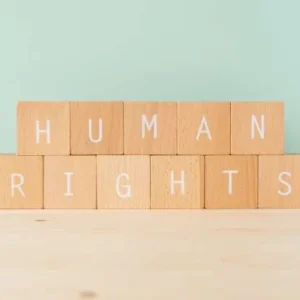The OSCE marked the 50th anniversary of the Helsinki Final Act by emphasizing the need to recommit to the principles of democracy, human rights, and the rule of law to address global challenges. Governments, international organizations, and civil society gathered in Warsaw for a 10-day Human Dimension Conference, organized by the 2025 Finnish Chairpersonship with support from the OSCE Office for Democratic Institutions and Human Rights (ODIHR), drawing a record 1,886 participants from across the OSCE region. The conference aimed to review progress on past commitments and discuss strategies to overcome current threats to democratic principles and fundamental freedoms.
OSCE Chairperson-in-Office Finnish Foreign Minister Elina Valtonen highlighted the crucial role of civil society, human rights defenders, journalists, youth activists, and community leaders in sustaining democratic resilience. The signing of the Helsinki Final Act five decades ago was a landmark in human rights history, integrating human rights on equal footing with political and military considerations. The conference provided a platform to assess the implementation of these commitments and explore ways to address urgent challenges facing the OSCE region.
ODIHR Director Maria Telalian stressed the ongoing erosion of human rights and civic space, citing conflicts like the war in Ukraine and widespread suppression of human rights defenders as threats to security and stability. Participants reiterated that sustainable security depends on human rights, democracy, and the rule of law, and discussed the importance of accountability for violations committed during armed conflicts.
The conference offered a forum to exchange views and share good practices on strengthening democratic institutions, promoting tolerance, combating discrimination, and upholding fundamental freedoms, including peaceful assembly, religious freedom, and media freedom. OSCE Secretary General Feridun H. Sinirlioğlu emphasized that diplomacy, trust, and cooperation are essential for building security grounded in democratic principles and human rights.
All 57 OSCE member states acknowledged the importance of a vibrant civil society for sustainable security, even as civil society activists and human rights defenders face increasing risks. Nearly 900 organizations and defenders participated, engaging in almost 120 side events hosted by OSCE states, civil society organizations, and OSCE institutions. OSCE Representative on Freedom of the Media Jan Braathu highlighted the need to protect journalists and independent media as a crucial element of stability and a safeguard against disinformation.
High-level speakers at the conference included Polish Foreign Affairs Minister Radosław Sikorski, OSCE Parliamentary Assembly President Pere Joan Pons Sampietro, OSCE High Commissioner on National Minorities Christophe Kamp, Council of Europe Commissioner for Human Rights Michael O’Flaherty, and Norwegian Helsinki Committee Secretary General Berit Lindeman. The conference underscored the enduring relevance of the Helsinki principles and the need for renewed commitment to democracy, human rights, and the rule of law across the OSCE region.






